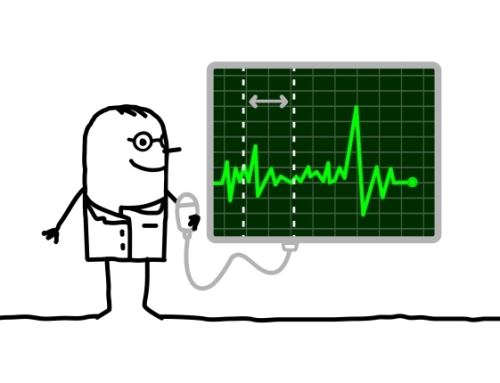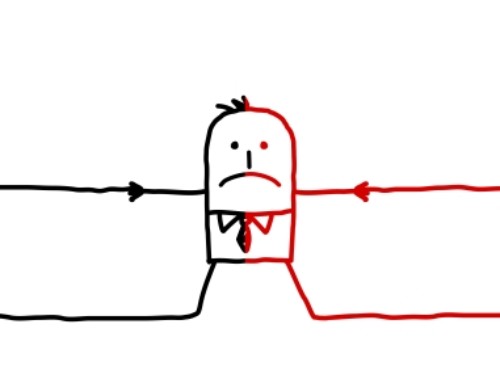In this article, I discuss strategies to manage frustration and anger in order to reduce the likelihood of aggression.
Estimated reading time: 8 minutes.
In my last article, I discussed the differences among the concepts of frustration, anger, and aggression as well as how they interact with each other in everyday situations. Much of the discussion focused on how the experience of frustration and subsequent anger often leads to aggressive behaviour.
Although unfortunately frustration, anger and aggression often operate in tandem as described in my last article, such a sequence of events culminating in the negative outcome of aggression is not inevitable. In the following sections, I will discuss strategies you can learn and apply to manage the emotions of frustration and anger to reduce the likelihood of behaving aggressively when you experience these emotions.
Manage frustration
Managing frustration entails taking steps aimed at lowering the intensity of this emotion. Doing so typically also leads to less intense anger toward whoever or whatever you view as the source of your frustration. In turn, this makes it less likely you would have the urge to behave aggressively.
Taking action and changing your thinking are two steps which can be helpful in addressing feelings of frustration. Taking action entails addressing the issue which is causing you to believe that you are stuck in moving toward your goal. Getting ‘unstuck’ lowers the intensity of frustration. For example, if you are feeling frustrated by believing that you are not making progress on a work project or in your career, taking steps to facilitate your progress would lessen your frustration. If you are feeling frustrated because your child does not do what you tell them to do, implementing strategies to get them to do what you tell them to do would lessen your frustration.
Changing your thinking to lower frustration intensity involves critically evaluating your thinking which is driving your frustration. This typically involves believing we are not making any progress toward our goals when the evidence says otherwise. For example, you may have a thought driving frustration such as ‘I’m not progressing in my career’ when there may be evidence you are overlooking to the contrary. Likewise, even though your child may not do what you ask them to do on some occasions, there may be others on which they do what you ask of them. This would allow you to shift from the thought, ‘My child never listens to me’ toward a more balanced thought which would help to lower your frustration when dealing with your child.
Manage anger
Taking steps to manage your anger while you also take steps to manage your frustration is a good idea. However, it is even more important to manage your anger when the cognitive and behavioral steps you have taken to manage your frustration have not reduced your frustration level sufficiently.
This situation will be present, for example, if taking action has not been effective (at least for the time being) in addressing the issues which is leading you to be stuck in moving toward your goal. This scenario will also be in play if critically evaluating your thinking reveals that there is little evidence that you are making progress toward your goal. For example, you may have tried diligently to get untuck in making progress in your career but your efforts have proved ineffective and there is little evidence that you are making progress. Or you may have tried many ideas to get your child to do what you tell them to do with no improvement and there is little evidence of times when they do what you tell them to do.
Under these conditions, your frustration is likely to remain at a high level of intensity as is your anger. In such instances, focusing on strategies to manage your anger can help you to keep it a manageable level of intensity—one at which it easier for you to behave in a constructive rather than an aggressive manner.
There are many strategies you can use to manage your anger. They include the following:
Self-soothe to calm your body
Self-soothing refers to calming your body so that the intensity of the anger you feel decreases. Doing so will make it more likely that you respond constructively to your anger. Breathing in through your nose, filling your diaphragm so that your ribcage and stomach expand, and then slowly exhaling is one of the easiest and most effective ways to self-soothe. Practice this technique to notice the calming effect on your body and you’ll be able to use it in situations which you need to address.
Practice balanced thinking and self-talk
When you feel anger at a high level of intensity, your thinking is usually skewed in a negative direction. At these times, you’re not thinking in an accurate or balanced manner about the person you are dealing with and the situation in which you are involved. Focusing on the negatives of the situation, assuming the worst about the other person’s intentions and motives, and having an overly rigid view of the need for others to adhere to rules and standards are just a few of the negative thinking patterns which can lead your anger to rise to a level of intensity at which it becomes difficult to behave in a constructive manner.
Thinking about the other person and the situation in an accurate manner in which you correct for these ‘cognitive distortions’ and balance the negatives of the situation with the positives will help you reduce the intensity of your anger to a level at which you can manage your reactions with constructive responses. Mind Over Mood is a book filled with balanced thinking tools like thought records which help you to manage your moods by changing the way you think. A psychologist trained in cognitive-behavioural therapy can help you become proficient in using these tools to manage your anger.
Learn how to communicate your points constructively
Half the battle in managing your anger effectively is learning how to state your points in a constructive (assertive) rather than a non-constructive (aggressive) manner. Getting your points across by stating your case clearly without resorting to negative references to the other person’s character or using abusive language or behavior is the heart of effective anger management. Staying constructive in your communication will also increase the likelihood that the other person will listen and respond constructively to your valid points.

Choose the right time to have potentially contentious discussions
It is much easier to manage your anger effectively if you choose to have potentially contentious discussions when you are calm and relaxed rather than feeling stressed out. In relationship expert John Gottman’s terms, you should avoid starting or continuing contentious discussions when you are feeling ‘flooded.’
Practice being aware of when you tend to be more relaxed and when you tend to be more stressed or flooded. Then make it a point to only enter potentially contentious discussions when you are relaxed and avoid entering into such discussions when you are flooded. An easy way to remember to use this tool is to use renowned psychologist Christine Padesky’s suggestion. She compares your emotional state to a traffic-light system. If you are calm and relaxed, then you are on ‘green light’ and it is a good time for you to enter into a potentially contentious discussion. If you are on the verge of feeling stressed out or you are already flooded, you are on ‘yellow light’ or ‘red light’ respectively and it is better for you to avoid entering a potentially contentious discussion.
If you are on yellow or red light, it is better for you to wait until you are on green light before having such a discussion. This will increase the likelihood that you will communicate your points constructively during the discussion. In addition, if you start a discussion on green light but find that you are getting to yellow or red during the discussion, you should consider taking a time-out and revisiting the discussion later when you are back on green light.
Rehearse potentially challenging situations
Athletes, actors, public speakers and other performers practice their performances in advance to help them perform at their best when it counts. In a similar manner, you can use rehearsal to manage your anger effectively in potentially challenging situations.
Rehearsal can help you manage your anger effectively in many ways. You can practice choosing ways to communicate your points constructively so that you are more likely to do so in the actual situation. Rehearsal also allows you to anticipate challenges you may face in the situation. You can then rehearse responses you can make which allow you to continue to manage your anger effectively in the situation. For example, you could rehearse a scenario in which the other person provokes you with an insult. You can practice self-soothing and balanced thinking to lower the intensity of your anger as a consequence of the provocation and then rehearse a constructive and nonaggressive response to the provocation.
You can practice rehearsing situations through visualization and role-playing. Rehearse through visualizing by closing your eyes and imagining the situation unfolding. Rehearsal through role-playing involves you and a trusted other person of yours enacting the potentially challenging situation ahead of its occurrence with your ‘trusted person’ playing the role of the person or people with whom you will be interacting. If you are working on this skill in counselling, your psychologist can perform the role-plays with you in addition to offering ideas to help you maximize the benefits of rehearsal in managing your anger.
Identify and address difficult emotions and situations beneath the surface of the ‘anger iceberg’
In some instances, you can manage your anger most effectively in each situation by being aware of and addressing difficult situations and emotions you are facing outside of that situation. These may involve problems you are facing such as those at work or in your relationships or finances and may involve you feeling emotions such as hurt, fear, or guilt.
There are two key steps you can take to manage your anger effectively in these ‘anger iceberg’ situations. First, be aware that the intensity of your anger in a situation may be fuelled partly or largely by situations and emotions away from that situation. Having this awareness should, by itself, make it less likely that you will overreact with non-constructive words and actions in that situation. Secondly, take steps to address the situations and emotions beneath the surface of your anger iceberg. If you find it difficult to do so, it may be helpful for you to see a psychologist to help you take the necessary steps. Doing so will help you remove that part of your anger iceberg which is below the surface. As a result, your ability to manage your anger effectively in particular situations should improve significantly.
Deal with events as they happen
Related to the points I made in the previous section is the importance of dealing with events as they happen. In other words, effective anger management involves paying attention to the signal your anger is giving you. If you heed this signal regularly, the intensity of the anger you experience should allow you to act on the signal in a constructive manner through your words and actions. On the other hand, if you ignore the signal your anger is giving you and do not act to address the situation which needs to be addressed, the intensity of your anger is likely to build as the area beneath the surface of the anger iceberg increases in size. This will make it more difficult for you to manage your anger constructively. The result is that you are more likely to overreact with an aggressive response to a particular situation.
Some final thoughts on frustration, anger and aggression
Managing frustration and the anger which ‘comes along for the ride’ is a challenging but attainable goal. The key to making progress is to recognize the challenges, practice the strategies and don’t get down on yourself if you’re not successful each time out. Focus on trying to improve at these skills rather than aiming at perfection with them.
You may benefit from working with a psychologist in using the strategies discussed in this article.
May you practice strategies to manage frustration and anger to reduce the likelihood of aggression,
-Dr. Pat




Leave A Comment